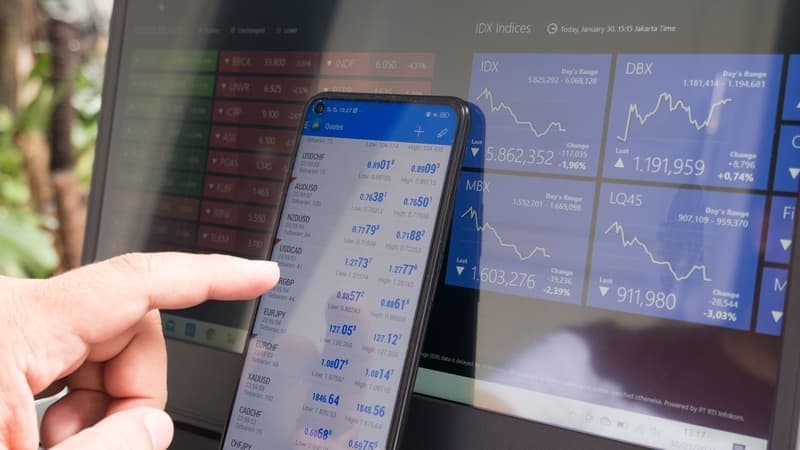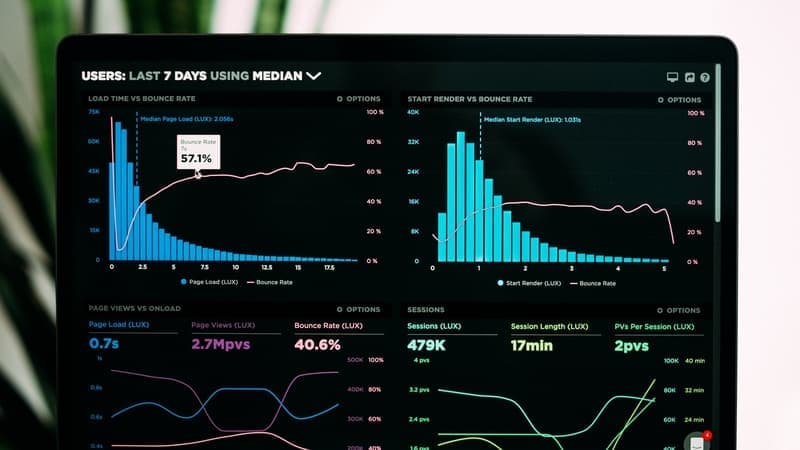What Can You Do with an Economics Degree? Top 10 Careers in Economics to Consider

Summary
Economics isn’t just a college major or area of study; it’s something we use in our everyday lives. Economics helps us make better financial decisions and understand global news and public policies. Economics is a foundational major designed to launch graduates into fulfilling careers in virtually anything! Students who study economics at a collegiate level not only deepen their understanding of finance, business, government, and law, they also thrive in these careers.
Economics isn’t just a college major or area of study; it’s something we use in our everyday lives. Economics helps us make better financial decisions and understand global news and public policies. Economics is a foundational major designed to launch graduates into fulfilling careers in virtually anything! Students who study economics at a collegiate level not only deepen their understanding of finance, business, government, and law, they also thrive in these careers.
What is an economics major?
Students who pursue a degree in economics learn to think creatively about the ongoing economic issues our world faces each day. Economics students study questions related to resource allocations, wealth, and incentives and apply theoretical perspectives to global and local issues like:
- Economic growth
- Social justice
- Freedom
- Discrimination
- Environmental concerns
- Cultural values
UC Berkeley’s Economics Department defines economics as “the study of human behaviors aimed at finding solutions to help improve peoples’ lives.” Students with an undergraduate economics degree don’t have to go into finance, banking, or government. This adaptable major is helpful to everyone. It gives students a better understanding of important economic issues and how to apply this knowledge in the real world.
Is Economics a Good Major?
When you are applying to universities, it can be difficult to know which major to select. Economics is one of the top five most popular majors in the US, with thousands of students studying it each year. If you’re considering an economics major, research everything you can about the courses and what you’ll be learning.
As an Economics major, you’ll analyze the economy and how government and businesses allocate resources and produce goods. Due to the ever-changing global political climate, there will always be a demand for people who understand these factors. The Economics degree provides insight into real-world experiences and offers solutions to problems, making it an attractive qualification for many industries. So, what can you do with an economics degree? Let’s take a closer look.
Interested in studying Economics but don’t know where to start? Crimson Education is the world’s leading college admissions consulting company. Our expert academic advisors will guide you through the entire application process from choosing the best universities for economics majors to ensuring your application stands out from the rest. Learn more about our Admissions Support Program.
10 Careers in Economics to Consider for Econ Majors
Economics majors thrive in virtually any business-related field. Their broad and diverse knowledge base allows them the freedom to choose a career that not only interests them but gives them space to grow, learn, and further develop their skills. Here are the top 10 careers for economics majors and a brief overview of each one.
Economist

One of the most common jobs for someone with an economics degree is an economist. A professional economist looks at economic trends around the globe and researches individual economic factors. They use their research to predict how the economy is going to progress in the future. Many economists work for businesses and universities.
Financial Analyst

Since an economics degree builds your number skills, many graduates find careers as financial analysts. Financial analysts mainly deal with an individual, company, or financial institution’s financial assets. They look at investments, bonds, stocks and shares, and legal tender, analyzing the best course of action for their client. They perform research and analysis to give accurate financial recommendations, making most of their client’s money or assets.
Accountant

Another popular career that deals with the financial side of an economics degree is accountancy. An accountant’s primary role is to look after their clients’ financial records, whether an individual or a business. They deal with tax returns and payments and analyze risk in their financial decisions. Accountants also recommend financial solutions for the company and identify how to cut operational costs to maximize profit.
Actuary

Actuaries help protect companies by focusing on risk and ways to minimize risk. They use lots of calculations, studying, and research before reporting on their findings. Healthcare, finance, IT, and finance companies all hire actuaries.
Market Research Analyst

Market researchers gather information and use their economic experience to identify how well a product or service will sell. They collect data on their potential customer base and learn about their purchasing preferences and what’s important to them. This role involves research and reports that use quantitative data and graphs to display results.
Statistician

If you enjoyed the statistical elements of your economics degree, you might want to consider a career as a statistician. This role focuses on both data and the analysis and interpretation of it. Depending on their position, statisticians often conduct research in a particular field, collate the data, analyze the findings, and evaluate the implications for their employer. Based on their research and findings, they make recommendations and help their employers make next-step decisions.
Management Consultant

Management consultants plan and create a strategy for companies and brands – organizing campaigns and projects through a series of steps. They often coordinate with others and work with different departments to turn plans into reality. Additionally, management consultants analyze current operations and make recommendations on how to improve or streamline them.
Policy Analyst

If you have a degree in economics and have achieved credits in politics or social policy, you may enjoy a career as a policy analyst. Policy analysts work within the national or local government. They research policy and existing laws, reporting on their findings and making recommendations to politicians.
Data Scientist

If you are interested in the science field, consider the role of a data scientist. Data scientists analyze data from several different studies, and they use this data to predict future events or behavior. Data scientists work for laboratories, technology developers, businesses, or retailers.
Graduate Study

Alternatively, instead of simply choosing a career after your bachelor’s degree, you can continue to study economics at a graduate level through a Master’s program or Ph.D. While a graduate degree isn’t necessary for a successful career, it’s a great option, especially if you’re interested in teaching in academia.
Is An Economics Degree Worth It?
An economics degree opens the door to many career options and a high salary. The average economics degree job salary in 2019 was around USD$105,000 (around HKD$69,000 per month). Additionally, according to the U.S. Bureau of Labor, opportunities and job outlook in this field have increased by about 8%. Jobs for economics majors aren’t going away! Since there is a considerable demand for graduates with high levels of numeracy skills and the ability to analyze data, there are plenty of careers in the global labor market.
Final Thoughts
An economics degree teaches you many transferable skills, including the powers of analysis and problem-solving. These skills make you an attractive candidate for nearly any job. If you’re looking for a versatile degree that offers both a high salary and a successful career path, you should consider a degree in economics.
Want to start a career in Economics or know if Economics is the right degree for you? Crimson Education is the world’s leading university admissions support company helping students navigate the US and UK university application process. We help you find your best-fit university, create a personalized roadmap, ace your standardized tests, craft the perfect essay, and build candidacy through extracurriculars. Check out our student success page to find more Q&As and case studies about our successful Crimson students.


